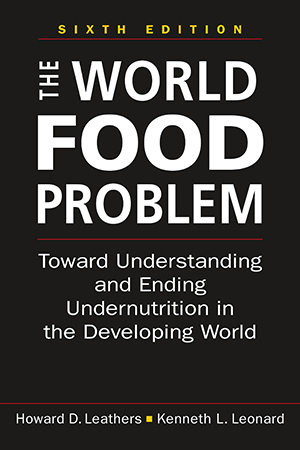
- 2023/433 pages
- 7"x9" format
The World Food Problem:
Toward Understanding and Ending Undernutrition in the Developing World, 6th edition
Paperback: $35.00
ISBN: 978-1-955055-67-3
Ebook: $35.00
ISBN: 978-1-955055-73-4
Continuing in the tradition of its acclaimed predecessors, the sixth edition of The World Food Problem reflects "a boldly multidisciplinary approach that captures all the complexity of the causes of, and solutions to, hunger ... in an engaging and often witty manner that is simple but never simplistic" (Mark G. Cohen, Hunger Notes).
Updated information and new case studies throughout this edition reflect the latest research, new policy directions, and the significant impact of the Covid-19 pandemic on agriculture, poverty, and hunger. There are also expanded discussions of developments in India and Africa, reflecting the decades-long experience of the text’s new coauthor, Kenneth Leonard.
The result is an accessible, comprehensive text, as well as a provocative assessment of prospects for the future.
Updated information and new case studies throughout this edition reflect the latest research, new policy directions, and the significant impact of the Covid-19 pandemic on agriculture, poverty, and hunger. There are also expanded discussions of developments in India and Africa, reflecting the decades-long experience of the text’s new coauthor, Kenneth Leonard.
The result is an accessible, comprehensive text, as well as a provocative assessment of prospects for the future.







